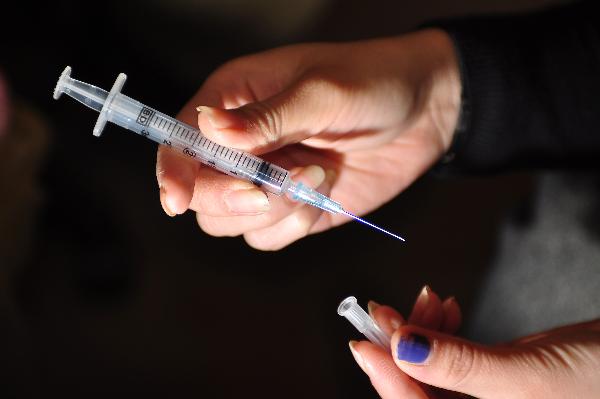
By Victoria Stone-Meadows
MPs have expressed concerns that the introduction of a medically supervised injecting room in North Richmond could see the facilities popping up in the South-Eastern suburbs as well.
As the debate over the proposed facility in the inner suburb rages on in the news and in parliament, Member for the South Eastern Metropolitan Region Inga Peulich has bought the debate into her area.
“Police crime stats show that there had been a whopping 17 per cent increase in Casey and many of these crimes were directly related to drug abuse,” she said.
“If we further soften policy, we can be looking at drug injecting rooms in Cranbourne, Berwick, Narre Warren and Hallam.”
However, there has been no mention from the MP who introduced the private member’s bill into parliament, The Sex Party’s Fiona Patten, that there are plans for injecting facilities anywhere other than Richmond.
Ms Peulich said any change to the current way drug laws and treatments are administered would have detrimental effects on communities all over the greater Melbourne area.
“This would herald a dramatic shift in drug policy and Richmond would just be the first cab off the rank,” Ms Peulich said.
“This push from advocates to have them (injecting rooms) established in areas with drug issues and Cranbourne and other surrounding suburbs have a big issue with ice.”
Ms Peulich said she would prefer to see a strengthening of current drug laws and an expansion of existing support services for drug users instead of establishing injecting facilities.
“We need to address ice addition in our suburbs and also the role of bikie gangs in the South-East in the manufacture and distribution of drugs,” she said.
“There is a much better way, and I did say to Fiona, that the Yarra Council’s opposition to CCTV seems like a logical place to start; put in place CCTV in to address the issue of trafficking and dealing and arrest the people responsible.
“We can’t just be treating the symptoms of the problem.”
Ms Patten has hit back at these claims from Ms Peulich, saying that injecting rooms were the answer for cleaning up city streets while treating and saving lives of vulnerable users.
“60,000 used needles in streets is a massive safety issue,” Ms Patten said.
“Residents and their children walk around worrying whether they will get injured and instead of action, Inga wants to just sit back and watch like it’s some awful reality show.”
“Well I’ve got news for her, it’s not a show. That 17 per cent increase in drug-related crime is on her and any other politician that thinks a sit-back-and-watch approach prevents crime.”
“Ms Peulich just perpetuates that problem, proposing more of the same that led to this nightmare in the first place.”
Ms Patten is adamant that medically supervised injecting centres in Melbourne would have mental health, medical, housing and other services included to target and treat users.
The debate over safe injecting rooms in Melbourne has been controversial at best, with both Labor and the Opposition saying they wouldn’t support the bill, but a state coroner speaking in favour of it.
Coroner Jacqui Hawkins stated recently that following the inquest of a young mother who overdosed on heroin in a Melbourne fast food restaurant, she would wholeheartedly support an injecting facility.
“On the evidence before me, I am convinced that a safe injecting facility in North Richmond is an essential intervention that could reduce the risk of future heroin overdose deaths occurring in circumstances similar to those of Ms A,” Ms Hawkins said.
“It is clear that MSIC has been successful in Sydney and has helped save many lives.”
“In conclusion, I support the establishment of a pilot safe injecting facility in North Richmond and accordingly have made that recommendation.”
The Medically Supervised Injecting Centre (MSIC) in King Cross in Sydney opened 15 years ago and research has shown it has helped save lives of users and end people’s long-term drug use habits.
According to evidence submitted to the coroner, the MSIC averages about 150 visits every day and has “managed“ 6500 overdoses.
During the 18 month trial period for the MSIC staff managed 329 heroin overdoses where most would have been fatal if they had occurred elsewhere.
In an independent financial evaluation of the MSIC undertaken by Saha International Limited, it is believed that the MSIC needs to prevent 0.8 deaths per year to return a positive outcome in economic terms.
Ms Patten believes these statistics from the MSIC show the success of injecting rooms in tackling the drug use rate and flow on effects in communities.
“Compare the referral success of the Sydney MSIC with the complete non-success of jailing users,” Ms Patten said.
“If you want to be tough on crime, you strike at the source. That’s what a MSIC allows you to do. That’s why they are in more than 90 cities and that’s why they get results.”
“Perhaps Ms Peulich needs to tap into the Kings Cross CCTV so she can see for herself how its MSIC has transformed the area.”






